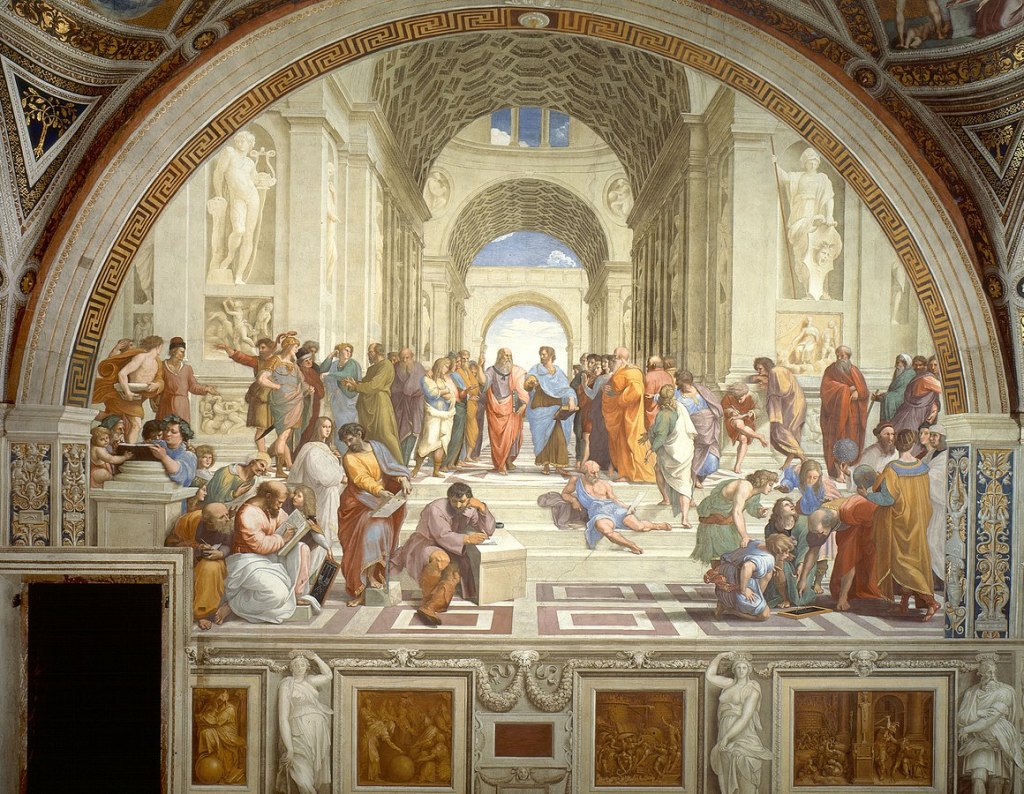Citizens of Persia; I, Alexander the Great, welcome you into my empire with this informative guide to help with your conversion into my kingdom. The following report details the educational, religious, and legal standards of the Greek empire that you are expected to adopt into your own lives.
Your education will vary according to your social status and sex.[1] Girls are to remain home and learn how to care for their family and husband.[2] In the city-state of Athens, only boys whose families could afford education attend school.[3] Girls are to learn function of the home.[4] School functions similarly regardless of said variables, beginning at age seven and finishing at age 14.[5] Classrooms are singular rooms with adequate seating, with no more than 20 students.[6] Teachings require vocal and auditory memorization[7] or is recorded on a wax board with a stylus.[8] Subjects taught are simple math, physical education, grammar, and music.[9] After age 14, boys might continue family business or trade, become a soldier, or learn under a Sophist.[10] Sophists provide teachings in rhetoric and philosophy.[11]

The legal systems found throughout city-states are monarchy, democracy, oligarchy, and tyranny.[12] Epeiros and my own empire, Macedonia, are monarchies with one absolute superior.[13] Oligarchies are the most popular system in city-states and Athens the most popular city-state with democracy.[14] Laws differ from each city-state.[15] Tort laws cover incidents concerning unwarranted personal damage, such as theft, murder, injuries, and abuse to private property.[16] Family laws and public laws unambiguously address their titled aspects of family and society.[17] Punishments for most tort offences are fines, an exception being murder which is given banishment.[18] Courts are responsibly for convicting a person guilty, and consisted of an offence litigant, defense litigant, and group of jurors.[19]

Our gods are many, the twelve most well-known referred to as the Olympians.[20] Each god expresses emotions and actions not different from humans while pertaining supernatural qualities.[21] Gods have morals, animals and other traits that they represent, such as the leader Zeus, god of the sky.[22] Arts such as sculptures, paintings and architecture are used to honour our gods.[23] Homor’s inclusion of gods in his celebrated literature The Iliad and Odyssey show the involvement of gods in everyday life.[24] Worship of the gods is practiced in temples which house alters and objects of or relating to the gods.[25] Common acts of worship include animal sacrifices, offerings of items such as food, and prayers thanking, asking, or praising the gods.[26]
[1] Deasy, “The Education System in Ancient Greece,” last modified November 03, 2021, https://classicalwisdom.com/culture/the-education-system-in-ancient-greece/
[2] “Education in Ancient Greece,” accessed on November 18, 2021, http://www.primaryhomeworkhelp.co.uk/greece/schools.htm
[3] Deasy, “The Education System in Ancient Greece.”
[4] “Education in Ancient Greece.”
[5] “Education in Ancient Greece.”
[6] “Education in Ancient Greece.”
[7] Garland, “The Education System in Ancient Greece,” last modified August 06, 2020, https://www.thegreatcoursesdaily.com/the-education-system-in-ancient-greece/
[8] “Education in Ancient Greece.”
[9] “Deasy, “The Education System in Ancient Greece.”
[10] Garland, “The Education System in Ancient Greece.”
[11] “Education in Ancient Greece.”
[12] “Ancient Greek Government,” last modified March 20, 2018, https://www.worldhistory.org/Greek_Government/
[13] “Ancient Greek Government.”
[14] “Ancient Greek Government.”
[15] “Greek law,” last modified September 06, 2021, https://www.britannica.com/topic/Greek-law
[16] “Legal System,” accessed on November 18, 2021, https://www.crystalinks.com/greeklaw.html
[17] “Legal System.”
[18] “Legal System.”
[19] “Legal System.”
[20] “Religion,” accessed on November 18, 2021, https://www.historymuseum.ca/cmc/exhibitions/civil/greece/gr1070e.html
[21] “Greek Religion,” accessed on November 18, 2021, https://www.penn.museum/sites/greek_world/religion.html
[22] “Religion.”
[23] “Greek Religion.”
[24] “Greek Religion.”
[25] “Ancient Greek Religion,” last modified March 13, 2018, https://www.worldhistory.org/Greek_Religion/
[26] “Greek Gods and Religious Practices,” last modified October 2003, https://www.metmuseum.org/toah/hd/grlg/hd_grlg.htm
Bibliography
Barrow, Mandy. “Education in Ancient Greece.” Ancient Greece. Accessed on November 18, 2021. http://www.primaryhomeworkhelp.co.uk/greece/schools.htm
Cartwright, Mark. “Ancient Greek Government.” World History Encyclopedia. Last modified March 20, 2018. https://www.worldhistory.org/Greek_Government/
Cartwright, Mark. “Ancient Greek Religion.” World History Encyclopedia. Last modified March 13, 2018. https://www.worldhistory.org/Greek_Religion/
Corcoran, Frank. “Religion.” Canadian Museum of History. Accessed on November 18, 2021. https://www.historymuseum.ca/cmc/exhibitions/civil/greece/gr1070e.html
Crystal, Ellie. “Legal System.” Crystalinks. Accessed on November 18, 2021. https://www.crystalinks.com/greeklaw.html
Deasy, Kristen. “The Education System in Ancient Greece.” Classical Wisdom. Last modified November 03, 2020. https://classicalwisdom.com/culture/the-education-system-in-ancient-greece/
Garland, Robert. “The Education System in Ancient Greece.” The Great Courses Daily, Wondrium. Last modified August 06, 2020. https://www.thegreatcoursesdaily.com/the-education-system-in-ancient-greece/
Hemingway, Colette, and Sean Hemingway. “Greek Gods and Religious Practices.” The Metropolitan Museum of Art. Last modified October 2003. https://www.metmuseum.org/toah/hd/grlg/hd_grlg.htm
Penn Museum. “Greek Religion.” The Ancient Greek World. Accessed on November 18, 2021. https://www.penn.museum/sites/greek_world/religion.html
The Editors of Encyclopedia Brittanica. “Greek law.” Encyclopædia Brittanica. Last modified September 06, 2011. https://www.britannica.com/topic/Greek-law